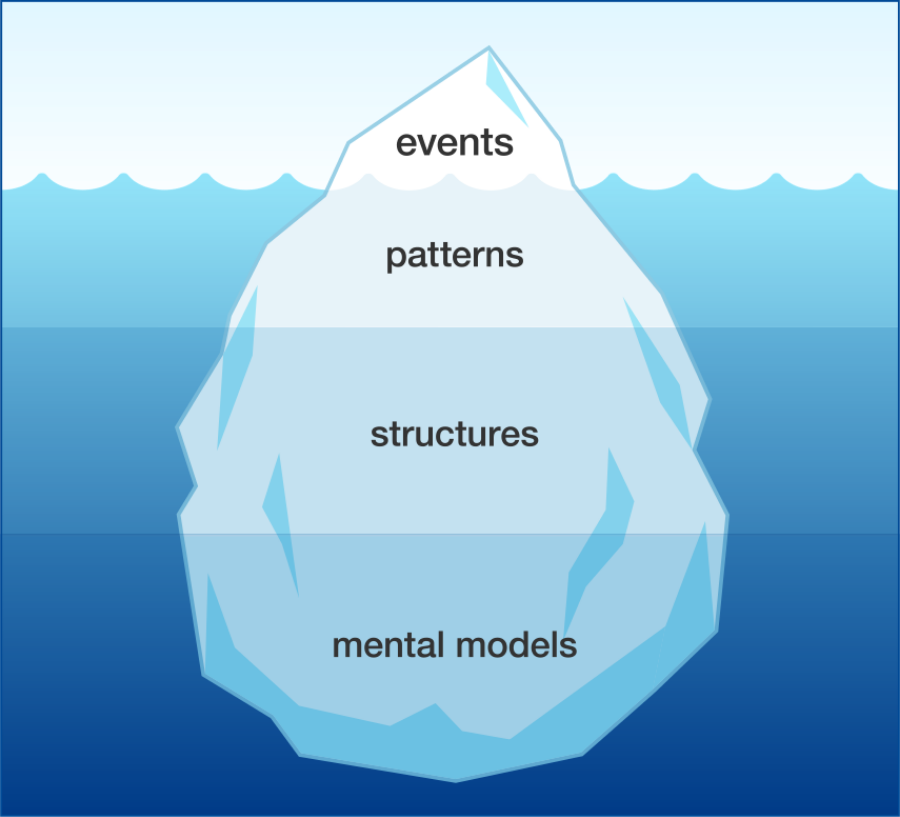Systems thinking
Iceberg model
The iceberg model is a framework for systems thinking that compares the entire system to an iceberg, and assumes that the "events" that we are often captivated by are only the tip of the iceberg, and that the "patterns," "structures," and "conscious and unconscious assumptions (mental models)" exist below the sea surface, where they are difficult to see. We are all aware that when things go well, we have a problem.
When things go well or when we face problems, we tend to focus on what is easy to see, and often feel happy or sad, don't we? Systems thinking is an approach that explores the big picture, rather than looking at things on an event-by-event level.

See patterns instead of events
When there is an event or problem such as a decrease in sales or an increase in costs and instead of focusing on the event alone, if you look back on the past and think about it, for example, "Sales declines a few months after the price-cut sale", you can see patterns that occur repeatedly By recognizing a pattern, it is possible to anticipate what will happen next and take systematic measures, but in complicated and uncertain situations, it is necessary to dig deeper.
See the structure of the system that causes the pattern
Why are those actions or events repeated in its pattern? By repeatedly asking why, we can see the structure that affects the pattern at a deeper level. Even if the person in charge is replaced, the same behavioral pattern is repeated as long as the structure of the underlying system does not change. In systems thinking, we do not blame ourselves or others, but think that there is a problem with the structure of the system. Systems thinking is also an approach of "believing in human potentials." There are several basic patterns in the structure of a system, and understanding that structure is the starting point for creative problem solving.
Dig into the interplay of underlying mental model and structures
The systems structure its rooted assumption in the consciousness and unconsciousness levels. This is called a "mental model" in systems thinking. If you work by reconsidering your own assumptions or intent of actions, you would not only adapt, but will learn autonomously and always create changes to better patterns.



